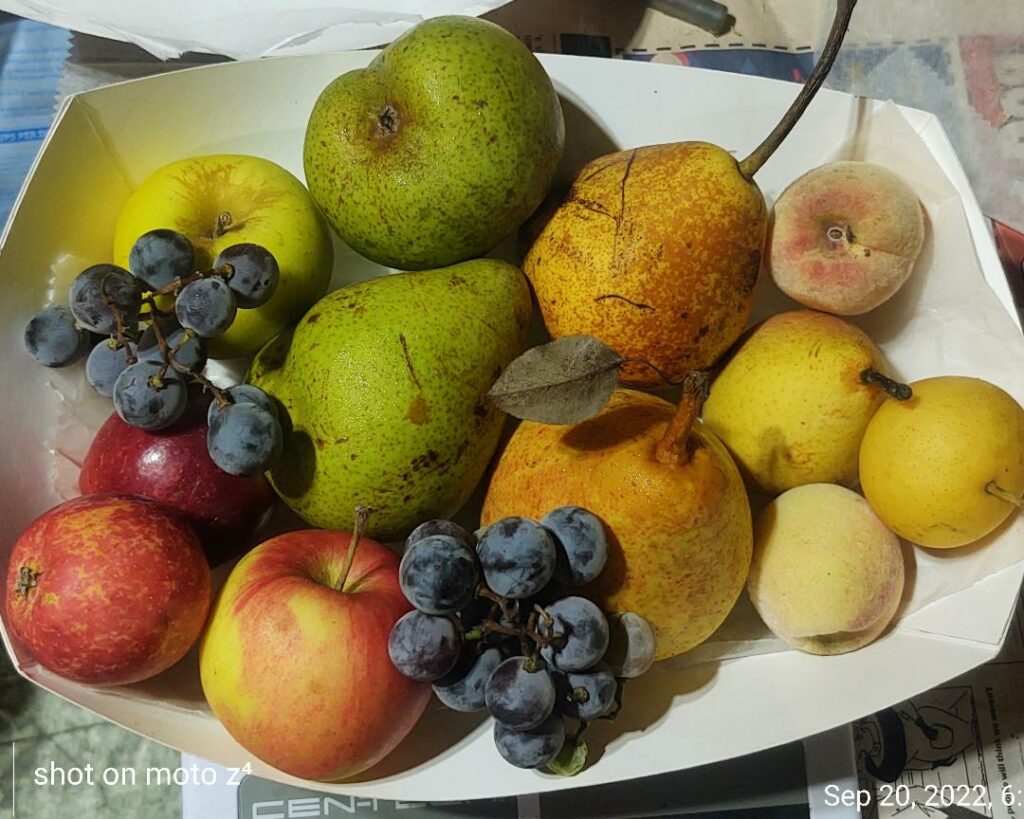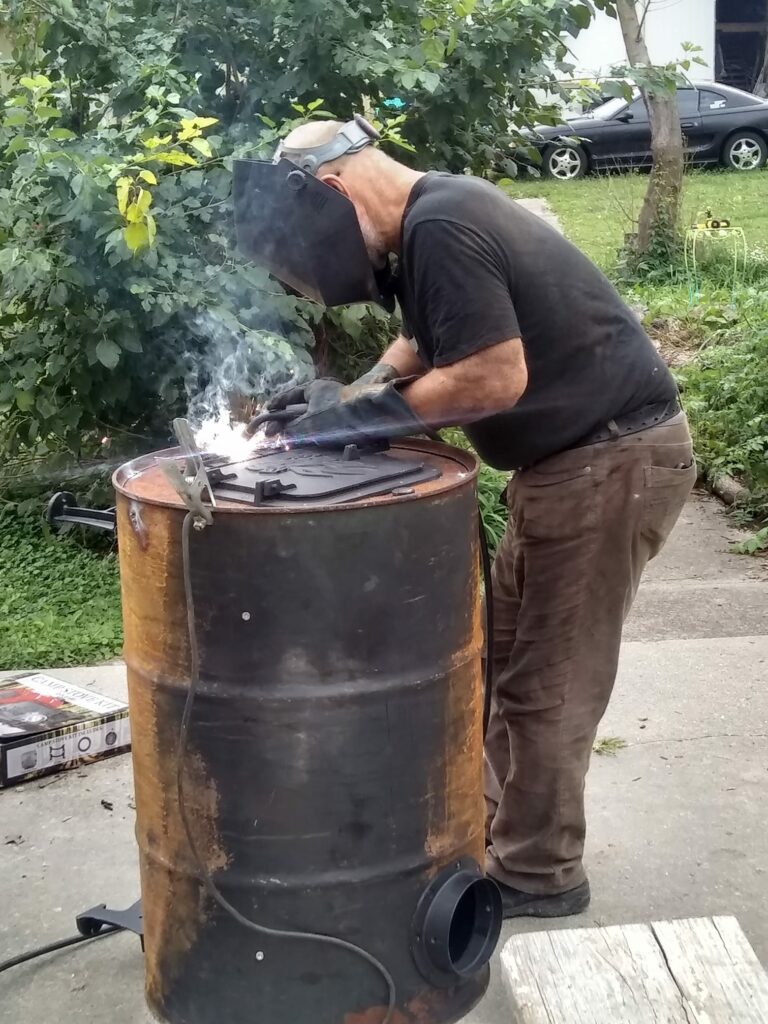Diverse Opportunities in Central Indiana
- Category
- Communities with Openings
- Location
- United States
We are a loose network of people, mostly neighbors, who seek to advance nature, equity, community and circular economies. The sites of our projects are in the Near East and Far East Sides of Indianapolis, Indiana.
We offer a buffet of options for participation, including simply living well with one another.
The below mentioned Pawpaw Place and Fruit Loop Acres are within two miles of Downtown Indianapolis, IN. Nearby assets include bike lanes, bus routes, libraries, fitness centers, a community center, educational institutions, Growing Places Indy, parks, White River, Pogue’s Run, hospitals and farmers’ markets.
For those who seek shelter, options include room rental, camping, purchase or rental of a permacultural homestead, and tiny housing. We can facilitate purchases and rental of bedrooms, townhomes and houses.
Here’s a break down of our opportunities:
1. Pawpaw Place, located in the Near East Side of Indianapolis, is named after the many nearby pawpaw trees and is owned by Greg Buck; his contact information is ecothink@yahoo.com . His main experience of intentional communities is with a member who lived and worked on the premises’ duplex, and with whom he conversed about needs and goals. Greg’s fruit producing woods, started in 2014, is 10,040 square feet with wild elderberry plants, hazelnut bushes, persimmon trees and black cherry trees.
Greg rents rooms by the month, preferring occupants to stay long term, on special occasions and or to provide needed work. Occupants in the duplex, his home, are required to be vaccinated for COVID-19.
Camping with tents and a recreation vehicle are accommodations Greg is willing to consider.
Welcomed is work on trees, grounds, website, equipment, writing and especially the duplex. Kay Grimm, mentioned below, is willing to train someone to manage the woods.
He is open to hosting volunteers, including WWOOFers (World Wide Opportunities on Organic Farms).
The climate crisis is real and building. Onsite solutions are welcome!
As a secular person the main examples of what count as authentic spirituality are passion for nature, empathy, and solidarity.
2. Near by is Kay Grimm, a pioneer in the local food movement and visionary regarding raising ancient grains. Her email address is kaygrmm@gmail.com (no letter I for Grimm in the address). She welcomes collaboration, including on:
– operating the 32,000 square foot “Fruit Loop Acres” – a permaculture homestead with a fruit forest and emu;
– selling and or leasing Fruit Loop Acres;
– development of a permaculture school for women;
– creating Willard Emporium (i.e., the former Fish Bowl Pet Shop) as a tool library, agricultural retail store, site for environmental education and gathering place where she also aims to grow edible water plants in aquariums;
– farming open parcels of land;
– building a vertical tiny house;
– delivering local food as Basic Roots Community Foods, carried out since 2005; and
– selling fruit and foraged products on MarketWagon.com.
3. Although a neighbor to Greg and Kay, Joe Werle’s Phoenix Urban Farm is on the Far East Side. He may be contacted at 317-557-2595. The almost two acre farm is located by a ditch. The site has several buildings that he seeks to put to fuller use, including a house, hoop house and barns. At least one of the outbuildings can be renovated into housing. He welcomes compatible partners, volunteers and WWOOFers. A pertinent link is
https://www.facebook.com/Steward-Owner-at-Phoenix-Urban-Farm-586675191395902.
Joe also rents rooms and apartments.
4. The adjacent historic and defunct Indiana Women’s Prison (i.e., Randolph Street Campus) is the site of the first adult female correctional facility in the nation, opened in 1873. The site’s 15 acres makes for some interesting possibilities. Greg can engage you with others about development of the site. Protection of the remaining structures is a pressing matter due to demolitions and neglect by the current owner.
5. Hamilton Green and Green Picket Fences are overlapping visions. Inquire with Greg or Kay. A link to Hamilton Green is https://transitiongroups.org/group/hamilton-green/ .
Green Picket Fences are ideas and initiatives to enhance Willard Park neighborhood as a vibrant and self-sufficient community. Our focus is on the 300 and 400 blocks of N. Hamilton, and the south edges of the 2000 and 2100 blocks of E. Michigan Street. The new skate park located in nearby Willard Park was initiated by GPF. The neighborhood’s Willard Park Of Holy Cross-Westminster Civic Alliance recognizes GPF as its quality of life plan. The themes are the following:
Green Art – Examples: Murals and sculptures in public spaces, vacant lots and boarded houses.
Green Energy – Examples: 1. Gardens and yardens, 2. woods, 3. a community gardener to do edible landscaping on our lawns, greenhouses, and 4. wind turbines.
Green Access – Examples: 1. A mixed use eco-village with housing, jobs, food production and distribution, entertainment, services and commerce at the site – minimizing use of automobiles given that many necessities and amenities would be in close proximity, 2. Willard Emporium (former Fish Bowl Pet Shop, and on Facebook as W.E. Seed & Feed) as a tool library and urban agriculture shop, 3. NEco Trail, which visualized to connect parks, a cinema, library, major streets, Willard Emporium, Fruit Loop Acres, and 4. green themed cooperatives.
Green Corridors – Examples: 1. signs and art that support a green sense of place, and 2. infrastructure in support of pedestrians, users of human powered vehicles (e.g., bicycles) and those who use wheel chairs.
Green Homesteads – Examples: 1. Energy efficient housing with attached greenhouses for winter gardening and home heating, and 2. vertical tiny housing.
Green Play – Examples: 1. Permanent chess tables, 2. a skate park, 3. more basketball courts, 4. a bicycle and skate shop, and 5. horse shoe pits beside fruit trees and benches.
Green Enterprise Zone – Extensive eco-commerce through closed loop systems. Examples: 1. Fruit Loop Acres, 2. stakeholders growing produce that is nutrient dense, non-GMO and chemical-free, and 3. sale of affordable produce.
Thanks for your interest. We look forward to your responses.


























